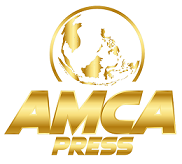The Effect of Self-Regulated Learning Toward Student’s Writing Ability
DOI:
https://doi.org/10.71365/edujet.v2i2.60Keywords:
Flipped Classroom, Self-Regulated Learning, Writing AbilityAbstract
Students need Self-Regulated Learning (SRL) to understand mistakes in scientific writing and achieve conceptual understanding. Background knowledge, age, gender, motivation, and self-regulated learning are affective factors that influence a person's success in acquiring a second language. For this reason, researchers then took self-regulated learning as a moderating variable in this study. The objective of this research is to determine whether there are differences in English writing abilities between students with different self-regulated learning. This study implemented a flipped classroom, while self-regulated learning was the moderator variable. The research method used in this study is a quasi-research with a pre-test and post-test control group design, while the teaching method for the experimental group used a flipped classroom. The participants of this study were 89 students. The study found differences in students' ability to write English based on SLR (Self-regulated learning). Future researchers are recommended to combine Self-Regulated Learning with other independent variables to obtain more diverse and useful data in educational research.
References
Bernacki, M. L., Vosicka, L., Utz, J. C., & Warren, C. B. (2021). Effects of digital learning skill training on the academic performance of undergraduates in science and mathematics 113(6), 1107. Journal of Educational Psychology, 113(6), 1107–1125. https://psycnet.apa.org/buy/2020-48724-001
Coe, R., Waring, M., Hedges, L. V., & Ashley, L. D. (2021). Research methods and methodologies in education. Sage.
Cruickshank, R. Jenkin, D.B. & Metcalf, K. . (2006). The Act of Teaching. New York: McGraw Hill.
Edisherashvili, N., Saks, K., Pedaste, M., & Leijen, Ä. (2022). Supporting self-regulated learning in distance learning contexts at Higher Education Level: Systematic literature review. Frontiers in Psychology, 12(January). https://doi.org/10.3389/fpsyg.2021.792422
Freedheim, D. K., & Weiner, I. B. (2021). Handbook of psychology. John Wiley & Sons, Inc..
Graham, S. (2020). The sciences of reading and writing must become more fully ntegrated. Reading Research Quarterly, 55(S1), S35–S44. https://doi.org/10.1002/rrq.332
Guo, W., Bai, B., & Song, H. (2021). Influences of process-based instruction on students’ use of self-regulated learning strategies in EFL writing. System, 101(July), 102578. https://doi.org/10.1016/j.system.2021.102578
Huntington-Klein, N. (2021). The effect: An introduction to research design and causality. Chapman and Hall/CRC.
Jiang, S., Lee, K. F., & Ang, C. S. (2022). Chinese ESL students’ perceptions of academic writing in English in Malaysian Universities. Pasaa, 63(June), 93–122. /www.culi.chula.ac.th/publicationsonline/home_p1.php
Kirschner, P., & Hendrick, C. (2020). How learning happens: Seminal works in educational psychology and what they mean in practice. Routledge.
Lee, V. S. (2023). Teaching and learning through inquiry: A guidebook for institutions and instructors. Taylor & Francis.
Lichtman, M. (2023). Qualitative research in education: A user’s guide. Routledge.
Liu, J., Xiang, P., McBride, R. E., & Chen, H. (2020). Self-regulated learning strategies and achievement goals among preservice physical education teachers. European Physical Education Review, 26(2), 375–391. https://doi.org/10.1177/1356336X19859602
Mostafaei Alaei, M., Hassanzadeh, M., & Masoudi, M. (2021). Exploring cognitive activation writing strategies among Iranian English language teachers. Language Related Research, 12(5), 433–462.
Pioneer, M. (2019). The effect of cooperative integrated reading and composition (CIRC) learning on text writing skills in students who have different self-regulated learning. Malang: State University of Malang.
Rasheed, R. A., Kamsin, A., & Abdullah, N. A. (2021). An approach for scaffolding students peer-learning self-regulation strategy in the online component of blended learning. IEEE Access, 9, 30721–30738. https://doi.org/10.1109/ACCESS.2021.3059916
Sun, Q., & Zhang, L. J. (2023). Examining the effects of English as a foreign language student-writers’ metacognitive experiences on their writing performance. Current Psychology, 42(27), 23743–23758. https://doi.org/10.1007/s12144-022-03416-0
Teng, M. F., Qin, C., & Wang, C. (2022). Validation of metacognitive academic writing strategies and the predictive effects on academic writing performance in a foreign language context. Metacognition and Learning, 17(1), 167–190. https://doi.org/10.1007/s11409-021-09278-4
Wahid, J. H., & Sudirman, S. (2023). The effect of mind mapping technique on students’ writing skills. Journal of Languages and Language Teaching, 11(1), 39. https://doi.org/10.33394/jollt.v11i1.6692
Winne, P. H. (2022). Modeling self-regulated learning as learners doing learning science: How trace data and learning analytics help develop skills for self-regulated learning. Metacognition and Learning, 17(3), 773–791. https://link.springer.com/article/10.1007/s11409-022-09305-y
Yan, Z. (2020). Self-assessment in the process of self-regulated learning and its relationship with academic achievement. Assessment and Evaluation in Higher Education, 45(2), 224–238. https://doi.org/10.1080/02602938.2019.1629390
Zimmerman, B. J., Greenberg, D., & Weinstein, C. E. (2023). Self-regulating academic study time: A strategy approach. In Self-regulation of learning and performance. Routledge.
Zimmerman, B. J. (2023). Dimensions of academic self-regulation: A conceptual framework for education. In Self-regulation of learning and performance. Routledge.
Downloads
Published
How to Cite
Issue
Section
License
Copyright (c) 2024 Shokhikhatul Khasanah, Kiswati Kiswati, Abd Hakim Muslim

This work is licensed under a Creative Commons Attribution-ShareAlike 4.0 International License.








